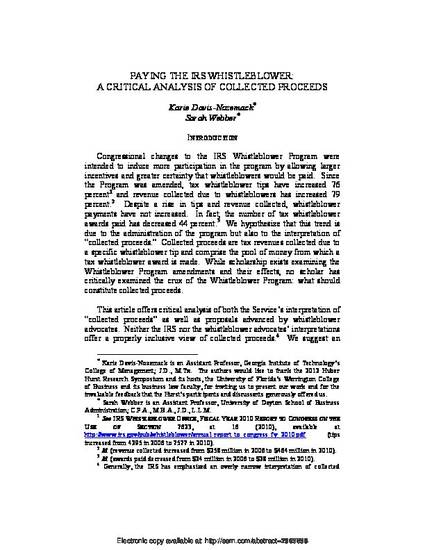
Congressional changes to the IRS Whistleblower Program were intended to induce more participation in the program by allowing larger incentives and greater certainty that whistleblowers would be paid. Since the Program was amended, tax whistleblower tips have increased 76 percent1 and revenue collected due to whistleblowers has increased 79 percent.2 Despite a rise in tips and revenue collected, whistleblower payments have not increased. In fact, the number of tax whistleblower awards paid has decreased 44 percent.3 We hypothesize that this trend is due to the administration of the program but also to the interpretation of “collected proceeds.” Collected proceeds are tax revenues collected due to a specific whistleblower tip and comprise the pool of money from which a tax whistleblower award is made. While scholarship exists examining the Whistleblower Program amendments and their effects, no scholar has critically examined the crux of the Whistleblower Program: what should constitute collected proceeds.
Available at: http://works.bepress.com/sarah_webber/11/
This document is available for download with pending permission from the publisher. Permission documentation is on file.